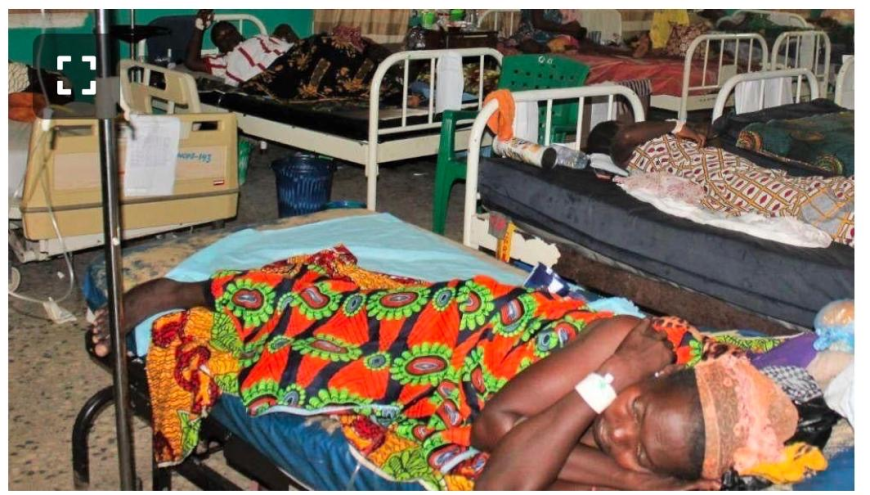ECOWAS Commits $245K to Fight Obstetric Fistula in Liberia

West Africa, Liberia: The Economic Community of West African States (ECOWAS) has committed $245,000 to support surgeries and reintegration programs for women suffering from obstetric fistula in Liberia. Obstetric fistula is a severe childbirth injury that creates an abnormal connection between a woman’s vagina and rectum or bladder, leading to chronic incontinence of urine or feces.
Benedict Roberts, Head of the ECOWAS National Office in Liberia, highlighted the initiative’s focus on identifying women affected by obstetric fistula, providing medical treatment, and equipping them with skills for reintegration into their communities.
"Women experiencing this condition will not only receive surgery but also livelihood training in tailoring, pastry making, cosmetology, and soap-making to prepare them for self-reliance," Roberts said.
“When they finish, we provide a financial package along with the skills they’ve learned to empower them.”
A Global and Local Crisis
Obstetric fistula is a global health issue, predominantly affecting women in poorer countries. According to the United Nations, over half a million women and girls live with the condition globally, with thousands of new cases annually primarily in Asia and Sub-Saharan Africa.
In Liberia, the condition is exacerbated by factors such as teenage pregnancy, inadequate obstetric care, low-skilled birth attendants, and sexual violence. The country’s fragile healthcare system, weakened by a 14-year civil war and the Ebola crisis, has been unable to meet the growing demand for treatment.
Victims often endure severe stigma and abandonment, which lead to psychological trauma and social isolation. The continuous leakage of urine or feces causes infections and chronic pain, while the associated malodor prevents women from participating in social or economic activities.
A Gap in Fistula Care
Liberia once had a beacon of hope for fistula patients—the Fistula Treatment and Rehabilitation Center at Phebe Hospital in Bong County. Built with a $3.5 million grant from Zonta International through UNFPA, the center provided surgeries, rehabilitation, and skills training until its closure in 2018 due to a lack of funding.
Ruth Walker, Fistula Coordinator at the Ministry of Health, lamented the absence of fistula care since UNFPA support ended.
“We are not doing anything now until ECOWAS begins its project,” she said.
Walker also highlighted the challenges of tracking fistula cases due to the absence of data within the Ministry of Health's Health Management Information System (HMIS). However, she noted that UNFPA has been instrumental in creating fistula indicators and training physicians in urogynecology to address the condition.
Local Efforts and Future Plans
While the Ministry of Health awaits ECOWAS funding, local organizations like Dignity Liberia have stepped in.
The NGO has constructed a maternal waiting home in Goyah’s Town, Todee District, for high-risk pregnant women.
Kathi Gutierrez, President of Dignity Liberia, explained the home’s purpose. “We aim to support at-risk women, such as those who previously had fistula, are too young to give birth, or have pregnancy-related conditions like gestational diabetes,” she said.
Women must register as patients and attend at least three prenatal visits to qualify for the home. They contribute a cup of rice per visit for meals and pay $20 for delivery services, which will take place at CH Rennie Hospital in Kakata.
In 2025, the organization plans to construct an adjoining women’s clinic to handle deliveries, including C-sections. “Once the clinic is complete, we will have resident doctors on call to ensure safe deliveries on-site,” Gutierrez added.
Legal and Policy Developments
Obstetric fistula and other reproductive health conditions are included in the draft revised Public Health Law currently before the Liberian Senate. If passed, the Ministry of Health will be required to ensure access to quality sexual and reproductive health services, information, and education.
This renewed focus on obstetric fistula signals hope for thousands of Liberian women living with the condition, as organizations like ECOWAS and Dignity Liberia work to restore their dignity and provide them with a chance at a better life.
What's Your Reaction?









































































